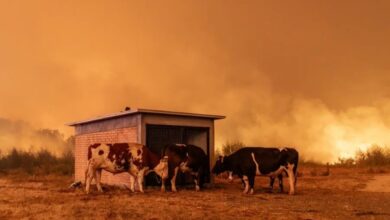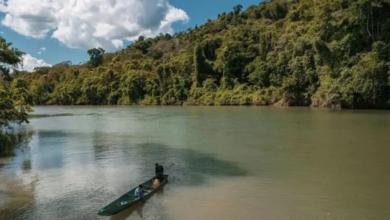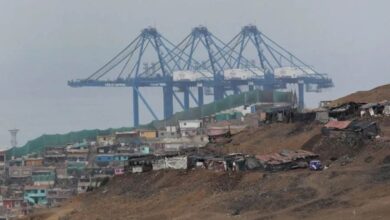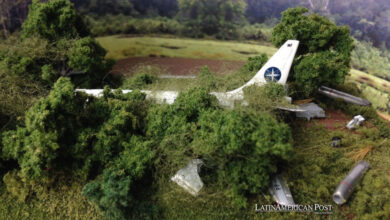Alarming Rise in Amazon Fires Marks a Troubling Start to 2024
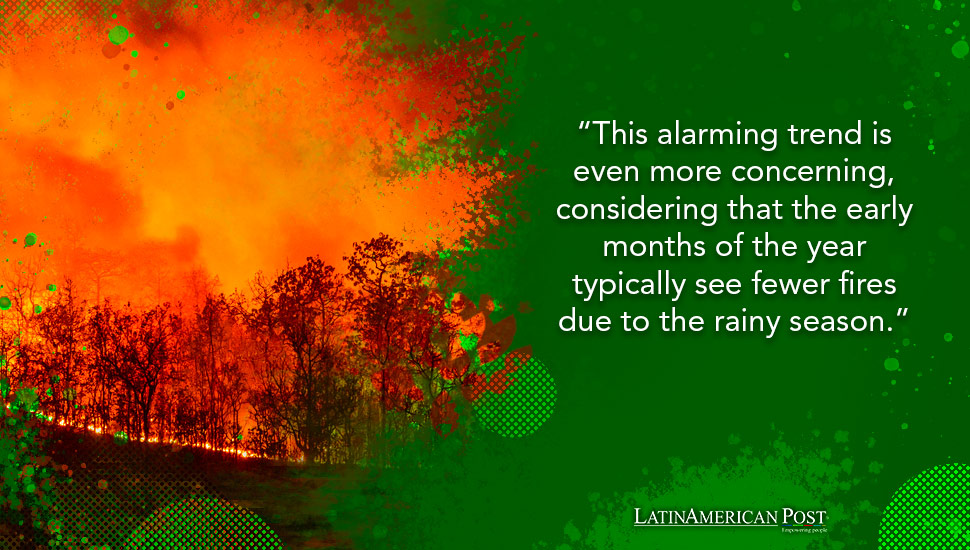
Brazil’s Amazon region has experienced a dramatic 151% increase in fires from January to April compared to 2023, setting a distressing record for the highest number since 2016.
In the first four months of 2024, Brazil’s Amazon has been engulfed in flames more than ever since 2016, with a staggering 8,977 fires recorded. This figure represents a sharp 151% increase over the same period last year, according to satellite data from the National Institute for Space Research (INPE).
Alarming Increase in Fire Outbreaks
April alone saw 1,117 fire outbreaks, a 45% increase compared to April 2023. Notably, over half of these fires were concentrated in Roraima, a state bordering Venezuela, while 28.1% occurred in Mato Grosso, a booming agricultural area in the southern part of the Amazon.
This alarming trend is even more concerning, considering that the early months of the year typically see fewer fires due to the rainy season. However, this year’s below-average rainfall, influenced by the El Niño weather phenomenon, has exacerbated the situation, leading to widespread destruction across the Amazon.
The impact on indigenous lands has been particularly severe. At least 67 fires have started in indigenous territories, predominantly in the Yanomami and Raposa Serra do Sol lands in Roraima. These fires threaten the rich biodiversity of the Amazon and the livelihoods and cultures of its indigenous peoples.
The scale of destruction is vast, with an estimated 2.6 million hectares obliterated by fires between January and March, according to Mapbiomas—a collaborative network of universities, NGOs, and tech companies monitoring deforestation across South America. This area, a staggering increase of 254% from the first quarter of the previous year, highlights the severe environmental degradation occurring in one of the world’s most critical ecosystems.
Despite a 41.8% decrease in deforestation in the Brazilian Amazon in the first three months compared to the previous year, the number and intensity of fires have remained the same, complicating efforts to protect this vital natural resource.
The current Brazilian administration, led by President Luiz Inácio Lula da Silva, has pledged to halt deforestation in the Amazon entirely by 2030. This commitment is part of a broader effort to address environmental concerns that have international implications, given Amazon’s role in global climate regulation and biodiversity.
The Amazon fires manifest in several interconnected issues, including illegal logging, land clearing for agriculture, and climate change, which disrupts weather patterns and increases the likelihood of fires. Political and economic pressures, both locally and globally, further complicate the situation, as Amazon’s resources are exploited for immediate gains.
Environmental experts and activists call for more robust actions to combat the fires and enforce laws against illegal activities contributing to the Amazon’s destruction. There is a critical need for international cooperation and support, as the Amazon’s health directly impacts global environmental stability.
The fires also highlight the need for sustainable development practices in regions like Mato Grosso, where agricultural expansion often comes at the expense of forest cover. Balancing economic growth with environmental conservation is essential to ensuring the long-term health of Amazon and its communities.
Moreover, protecting indigenous rights is crucial in the fight against deforestation and fires. Indigenous communities are often the most effective stewards of their ancestral lands, possessing traditional knowledge that can contribute to sustainable environmental management. Ensuring and involving their land rights in decision-making processes is fundamental to preserving the Amazon’s ecological and cultural heritage.
Global Responsibility
As Brazil moves forward with its environmental commitments, the global community must recognize its role in supporting these efforts. Reducing the demand for products linked to deforestation, investing in sustainable practices, and supporting international agreements aimed at environmental protection can help mitigate the impact of fires and deforestation.
Also read: Bogota’s Water Rationing Amid Unprecedented Colombia Drought
The situation in the Amazon is a stark reminder of the urgent need for concerted efforts to protect our planet’s lungs. As the world watches the fires burn, it becomes increasingly clear that the fate of the Amazon is not just a national issue for Brazil but a global one that requires immediate and sustained action.

